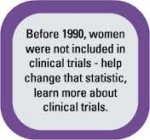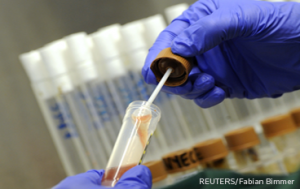 The Women’s Health Research Institute at Northwestern University applauds the recent release of a new Action Plan developed the Food in Drug Administration in response to a Congressional directive to look closer at the inclusion and analysis of demographic subgroups including women and minorities in applications for new drugs and devices.
The Women’s Health Research Institute at Northwestern University applauds the recent release of a new Action Plan developed the Food in Drug Administration in response to a Congressional directive to look closer at the inclusion and analysis of demographic subgroups including women and minorities in applications for new drugs and devices.
The Action Plan to Enhance the Collection and Availability of Subgroup Data, released August 18, includes 27 action steps that address the quality of data collection, reporting and analysis; barriers to subgroup inclusion in clinical trials; and availability and transparency of sub group data in new drug/device applications. Members of the WHRI Leadership Council, composed of researchers, educators and clinicians at Northwestern Medicine committed to women health and the study of sex differences will be reviewing and commenting on the plan. In addition, several Council members will be participating in workgroups helping the National Institute of Health develop guidelines to increase the inclusion of female subjects in all basic science, translational and clinical research.

 Most people know that human clinical trials are critical to prove safety and efficacy in new medications. This is also true for medical devices yet a recent study indicated that only 14% of device studies included sex as a key outcome measure, and only 4% included a subgroup analysis for female participants. The differences in anatomy and physiology, as well as other factors in men and women, can lead to devices working less effectively and safely.
Most people know that human clinical trials are critical to prove safety and efficacy in new medications. This is also true for medical devices yet a recent study indicated that only 14% of device studies included sex as a key outcome measure, and only 4% included a subgroup analysis for female participants. The differences in anatomy and physiology, as well as other factors in men and women, can lead to devices working less effectively and safely. Men and Women are physiologically different, and it is essential to ensure adequate participation of both sexes in research studies in order to determine sex-based differences in disease presentation, prevalence, and treatment. A press release from Mary Ann Liebert, Inc. Publishers revealed a study that tested the participation rate of women in post-approval studies mandated by the Food and Drug Administration (FDA). Out of their sample size, researchers found that only 14% of studies “included a multivariate analysis that included sex as a covariate” and a meager 4% “included a subgroup analysis for female participants.” These shocking results mean that women are not getting adequate attention in clinical trials, which may result in harmful drug or device reactions in women.
Men and Women are physiologically different, and it is essential to ensure adequate participation of both sexes in research studies in order to determine sex-based differences in disease presentation, prevalence, and treatment. A press release from Mary Ann Liebert, Inc. Publishers revealed a study that tested the participation rate of women in post-approval studies mandated by the Food and Drug Administration (FDA). Out of their sample size, researchers found that only 14% of studies “included a multivariate analysis that included sex as a covariate” and a meager 4% “included a subgroup analysis for female participants.” These shocking results mean that women are not getting adequate attention in clinical trials, which may result in harmful drug or device reactions in women. The United States Food and Drug Administration recently approved the first non-hormonal solution to hot flashes associated with menopause; it is the drug Brisdelle. Nearly 75% of menopausal women experience hot flashes, which are extreme feelings of warmth accompanied with redness and sweating. While hot flashes can spread over the entire body, they are mostly concentrated in the face and neck. Hot flashes are the most common side effect of menopause, and while the exact cause of hot flashes is unknown, a great deal of research is conducted on alleviating this discomfort for women. This new drug Brisdelle offers a non-hormonal alternative to the
The United States Food and Drug Administration recently approved the first non-hormonal solution to hot flashes associated with menopause; it is the drug Brisdelle. Nearly 75% of menopausal women experience hot flashes, which are extreme feelings of warmth accompanied with redness and sweating. While hot flashes can spread over the entire body, they are mostly concentrated in the face and neck. Hot flashes are the most common side effect of menopause, and while the exact cause of hot flashes is unknown, a great deal of research is conducted on alleviating this discomfort for women. This new drug Brisdelle offers a non-hormonal alternative to the